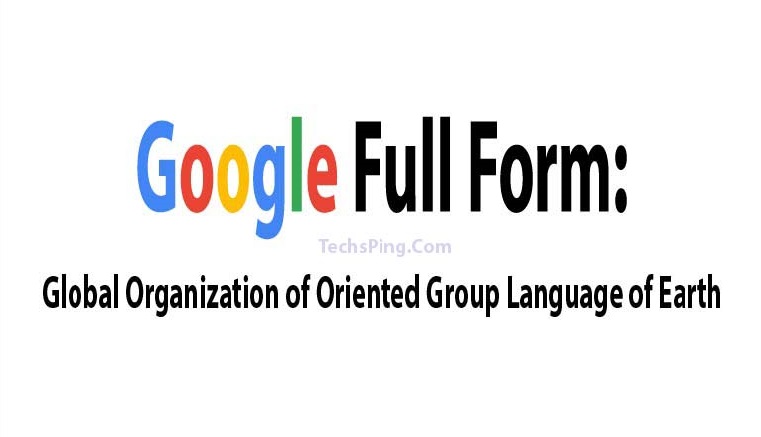What is Google Full Form?
The full form Google is Global Organization of Oriented Group Language of Earth.
Google is such a part of our everyday lives that many of us take the time to consider “what is the full form of Google?”
In other words, the Google full form in English must stand for something. But what is Google full form, and what do we mean by the question what is the full form of Google?
Google full form actually refers to two very separate things. The company name represents an amalgamation, or combination, of these two concepts. One of them is relating to a very large number while the other is an acronym. Of course, whether the acronym was retrofitted to the number is an interesting point of inquiry, but there’s little doubt that the number Googol came before the name Google itself.
So how much is a Googol? One Googol is equivalent to 1.0 × 10^100 or 1, followed by one hundred zeroes. In other words, pun intended, it is a very, very large number. This term was probably chosen because of how novel it sounds in addition to the quantity it represents. In terms of search engines, this myriad of data points can best be summed up by such a large, somewhat unimaginable number. Again, though, many indicators point to it sounding really good as a corporate name. Additionally, “Google” has the vague attribute of being both a noun and a verb as in “to Google something.”
So where does “Google” full form come from outside of the massive number Googol?
Google itself is an acronym comprised of the words Global Organization of Oriented Group Language of Earth. As we said earlier, it seems like the acronym was retrofitted to the general term Googol thus giving us the much friendlier (in English that is) spelling Google.
What is oriented group language? That is basically how Google quantifies and searches through information. It is part library science, part computer wizardry. Using search terms, phrases, and keywords, Google is able to sift through hundreds of thousands of websites looking for those terms, combinations of those terms, or vaguely familiar phrases.
This methodology gave rise to the various forms of search engine optimization that we see today where keywords and phrases are intentionally used in a strategic sense in order to “get” Google’s attention. As time has progressed, what used to be a more static search function that mainly focused on keywords and set phrases has become increasingly intuitive so that Google can actually try to predict what the person is searching for now and into the future.
Such technology has given rise to the companies numerous other offerings such as Google Docs and YouTube, the world’s second-largest search engine after Google. YouTube, like its parent company named after Googol, uses contextual keywords, tags, and video descriptions to connect users with relevant content that they are searching for whether on Google or YouTube directly. A staple of the Internet, Google full form word represents both its heritage in library science and its current role as a pioneer of information technology.





Leave a Reply